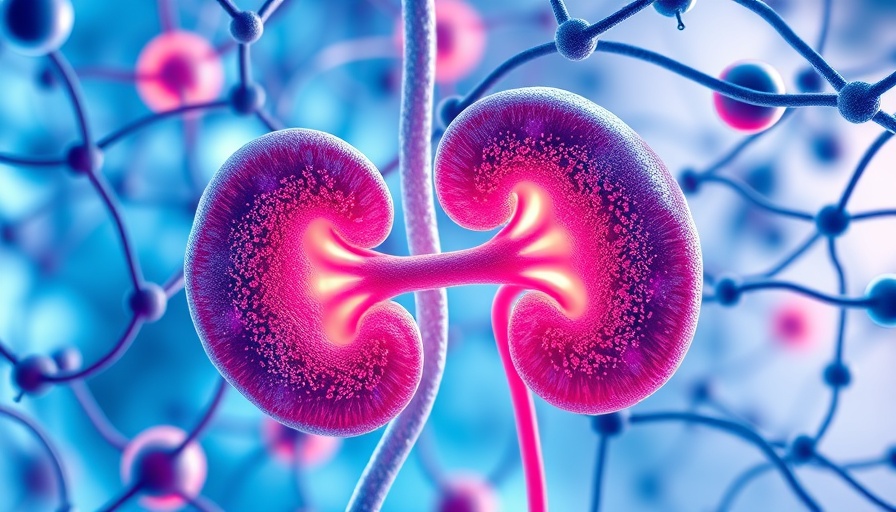
Understanding Diabetic Nephropathy: A Modern Challenge
Diabetic nephropathy (DN) is emerging as a significant complication of diabetes, impacting the health of millions globally. Characterized by progressive kidney damage, DN occurs as a result of long-standing diabetes and can eventually lead to end-stage renal disease. As more research surfaces, the focus has shifted towards exploring the cellular underpinnings of this condition, particularly through metabolic reprogramming mechanisms. This is where advancements in bioinformatics and machine learning come into play, providing us with powerful tools to understand DN's complex metabolic processes in greater detail.
The Role of Metabolic Reprogramming in Diabetic Nephropathy
Metabolic reprogramming refers to the alterations in cellular metabolism that often accompany diseases like DN. Specifically, it highlights how the kidneys adapt—and often maladapt—under diabetic conditions. Through comprehensive analyses utilizing bioinformatics, researchers have identified key metabolic pathways that become dysregulated in DN. Understanding these pathways is crucialNot only does it provide insights on progression but also opens avenues for therapeutic interventions such as stem cell therapy and NAD+ boosters that aim to restore normal cellular functions.
Insights from Bioinformatics and Machine Learning
By employing bioinformatics tools and machine learning algorithms, researchers can process vast amounts of biological data to discern patterns and correlations that were previously obscured. This technology allows for a deeper exploration of gene expressions tied to mitochondrial function, cellular repair, and autophagy benefits, all of which are crucial in cellular rejuvenation and combating inflammation within the kidneys. As a result, therapeutic possibilities abound, targeting specific metabolic dysfunctions to reverse cellular senescence in renal cells.
Future Directions in Research: Enhancing Cellular Health
Future research will undoubtedly delve deeper into how pharmacological interventions can mimic the beneficial effects of stem cells on regenerative medicine for DN. The potential of enhancing autophagy—a process that clears damaged cells and proteins—offers hope in rejuvenating renal function in affected individuals. Harnessing cellular health through NAD+ boosters and other innovative strategies could mean significant strides in slowing down or even reversing the onset of diabetic nephropathy.
Why This Matters to Health-Conscious Individuals
Your cellular health directly impacts not just longevity but overall vitality. Understanding how metabolic reprogramming affects conditions such as diabetic nephropathy can empower health-conscious individuals to make informed choices regarding their well-being. Incorporating learnings from cell renewal and anti-aging cells into daily routines—through diet, supplements, and lifestyle changes—may contribute to improved health outcomes as you age. Therefore, staying abreast of these developments can be transformative for anyone seeking to maintain youthfulness and energy.
In conclusion, the convergence of bioinformatics, machine learning, and regenerative medicine holds unparalleled potential to redefine treatment strategies for diabetic nephropathy. By investing in our understanding of cellular mechanisms and adopting healthier living strategies, we not only equip ourselves with knowledge but also take proactive steps towards cultivating a robust, thriving future.
 Add Row
Add Row  Add
Add 




Write A Comment